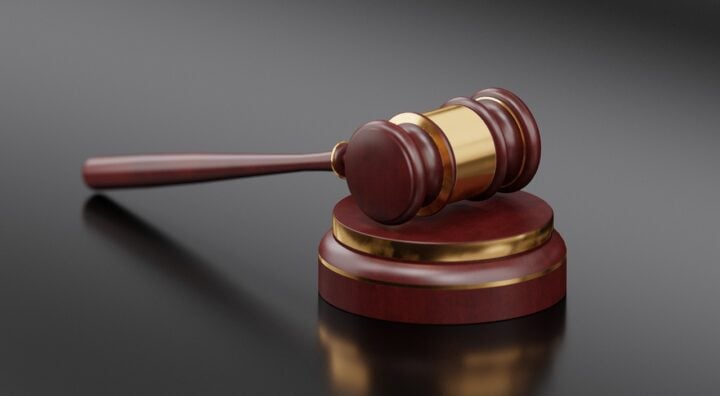A gavel
A federal high court in Abuja has reserved a ruling in a no-case submission filed by Abiodun Agbele, an associate of Ayodele Fayose, former governor of Ekiti state.
Agbele is standing trial alongside Sylvan Mcnamara Limited, De Privateer Limited, and Spotless Investment Limited in a 24-count amended charge bordering on money laundering of N1.219 billion.
The money is part of N4.7 billion allegedly transferred from an account belonging to the office of the national security adviser (ONSA) domiciled in the Central Bank of Nigeria (CBN).
The Economic and Financial Crimes Commission (EFCC) accused Agbele of indirectly accepting the N1.219 billion in cash through an official of Zenith Bank in Akure, Ondo state, from Musiliu Obanikoro, a former minister of state for defence, on behalf of Fayose in June 2014 without going through a financial institution.
Advertisement
The EFCC said Agbele committed an offence contrary to section 1(a) of the Money Laundering (Prohibition) Act 2011 (as amended) and punishable under section 1503 of the same act.
The commission also accused Agbele of aiding De Privateer Limited to take possession of N200 million, which was part of the N1.219 billion, on behalf of Fayose, contrary to section 18 (a) of the Money Laundering Prohibition Act 2011 (as amended) and punishable under section 18 of the same act.
The prosecution called 16 witnesses between September 2016 and 2024.
Advertisement
However, instead of opening a defence, the first defendant (Agbele) filed a no-case submission, insisting that the prosecution had failed to establish a prima facie case against him.
“The first defendant, having considered the totality of evidence led by the prosecution and the exhibits tendered, vis-à-vis the 24 counts amended charge, strongly submits that no prima facie, however, the case has been made out in any way or manner howsoever against him such as to require him to open a defence and/or enter any defence in this matter,” the document reads.
“The honourable court is urged to uphold our no-case submission, discharge, and acquit the first defendant. The heavens will not fall if this honourable court does what is right and according to the dictates of the law and its conscience.
“We humbly therefore urge your lordship to dismiss the charge and discharge the defendant.”
Advertisement
Add a comment






